PROYECTOS ACTUALES
East Lake Oral History Research

Austin Area Minority Business Project
Since 2017, HACER has worked with Immigrant Law Center of Minnesota (ILCM), Small Business Development Center (SBDC) and other local organizations to promote Economic Development in Austin. HACER is evaluating the project exploring 40 indicators that help the us to gather information from the businesses in the area. When completed, this collaborative project will strengthen the Austin community.
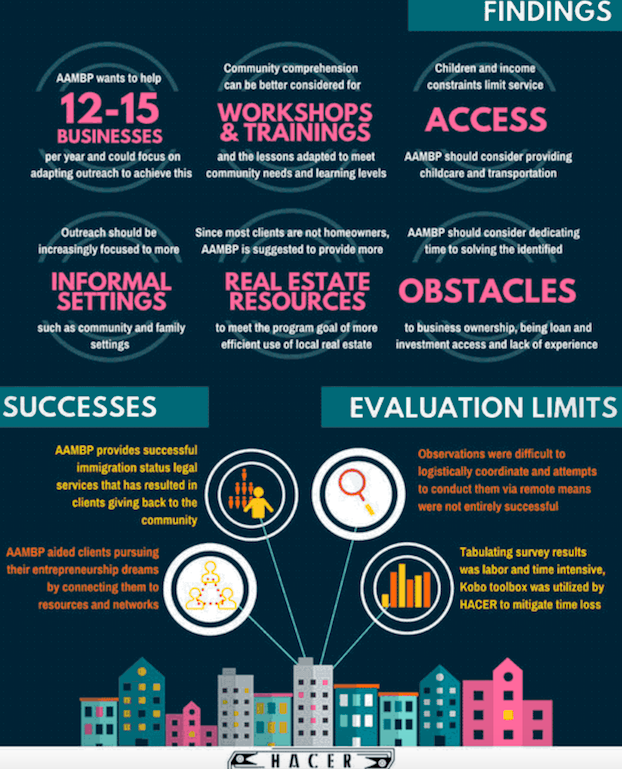
ABCD in Rural Minnesota
ABCD in Rural Minnesota works with the Latino community of St. James, MN to identify their existing but under-utilized assets and incentivize healthy physical activities. With this project, HACER aims to understand why the Latino community of rural Minnesota is the least physically active in the region, and how to incentivize them to design healthy physical activities. The project will include an qualitative questionnaire and three Design Thinking workshops. After the Design thinking sessions, participants will present their initiatives to city officials.
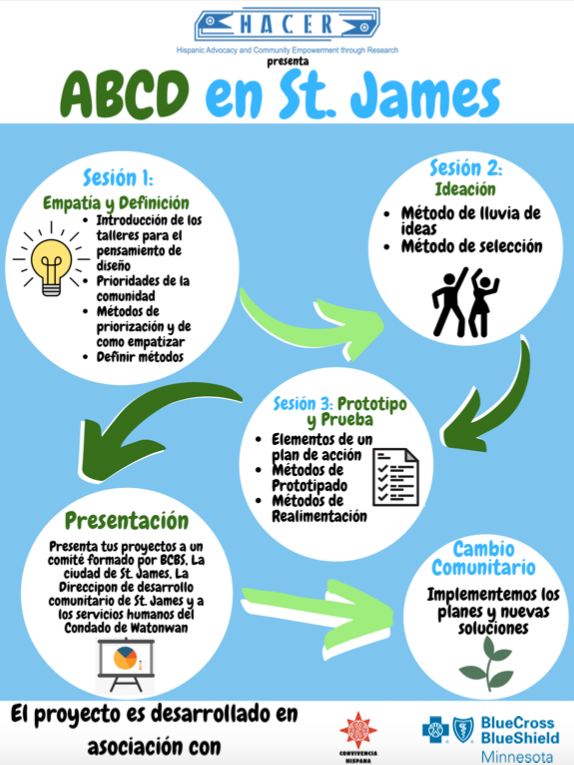
Learning by Doing
This innovative qualitative research project seeks to reduce obesity and diet-related diseases in rural Latino communities. The project seeks to improve dietary habits among Latino individuals in rural Minnesota by understanding the grocery shopping process of Latino families. The findings from in-depth interviews and behavioral observation research are the inputs to design Learning-by-Doing workshops.
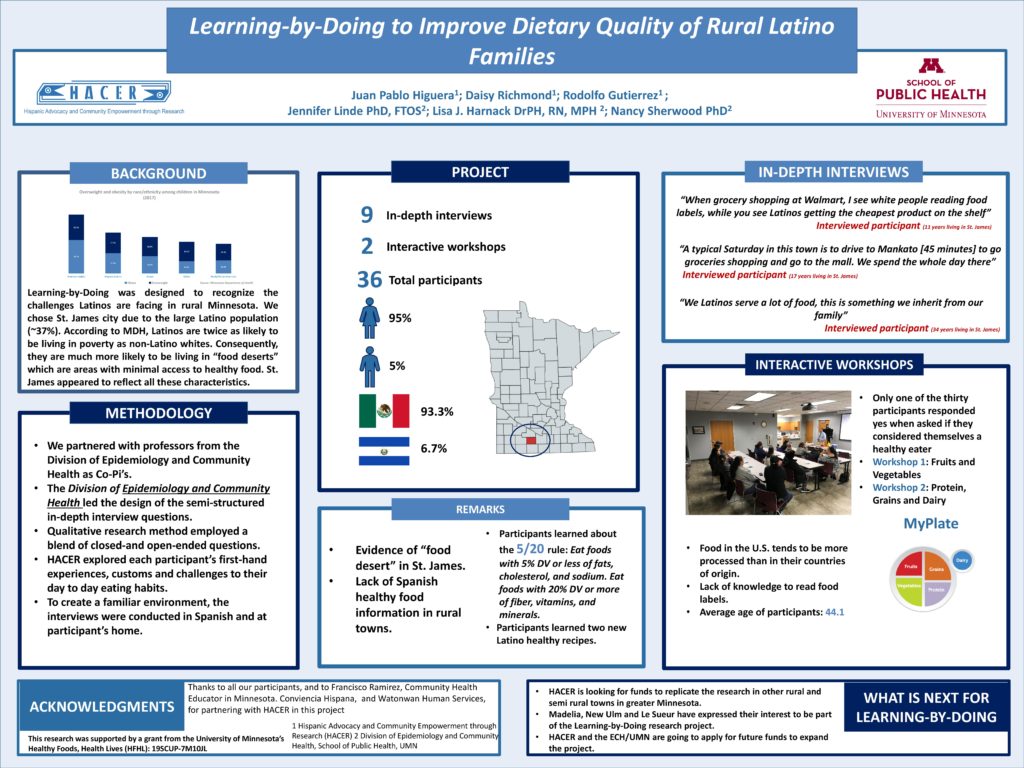
Creando Ando
Creando Ando aims to understand the Latino behavior when starting a business. The project also aims to build personal confidence and entrepreneurship mindset among the Latino community of Rochester through Design Thinking. The project will focus on Latinos and will foster the creation of new Latino business in the city. The project will directly work with 16 Latinos and will include a survey, three design thinking workshops, one business presentation and ten hours of one-on-one business coaching.
If you are interested in being part of the project please take the following survey:
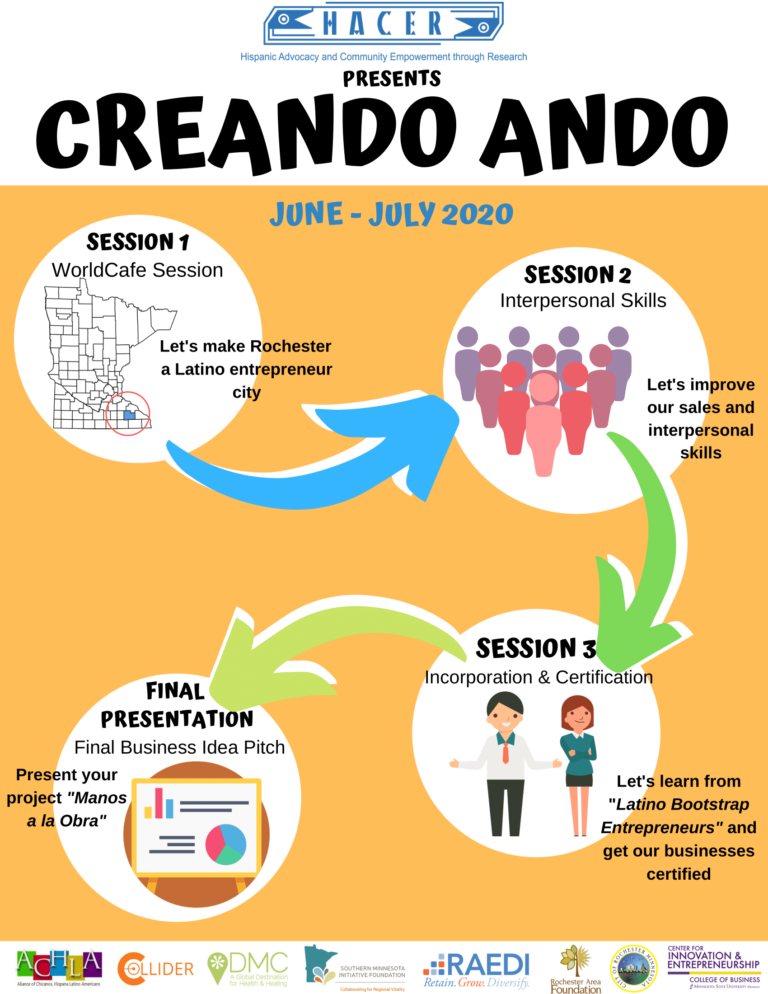
COVID-19: ¿Qué HACER en estos momentos, y después?
As new information and research are consistently arising regarding the coronavirus, we are working directly with the Minnesota Department of Health in order to better inform Latino/a leaders as well as the Latino/a community about COVID-19. Through this project, we will be assessing the needs of the Latino communities in the Twin Cities Metro and greater Minnesota through polls and video focus groups. We will then be disseminating the information collected with Latino community partners and organizations working with the Latino community.
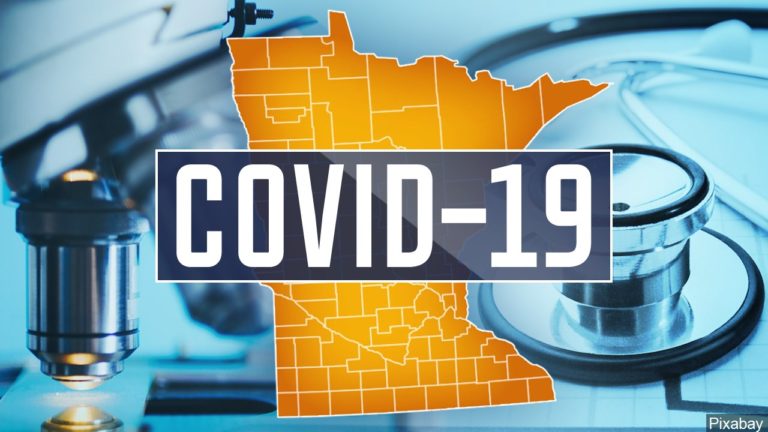
Census 2020

